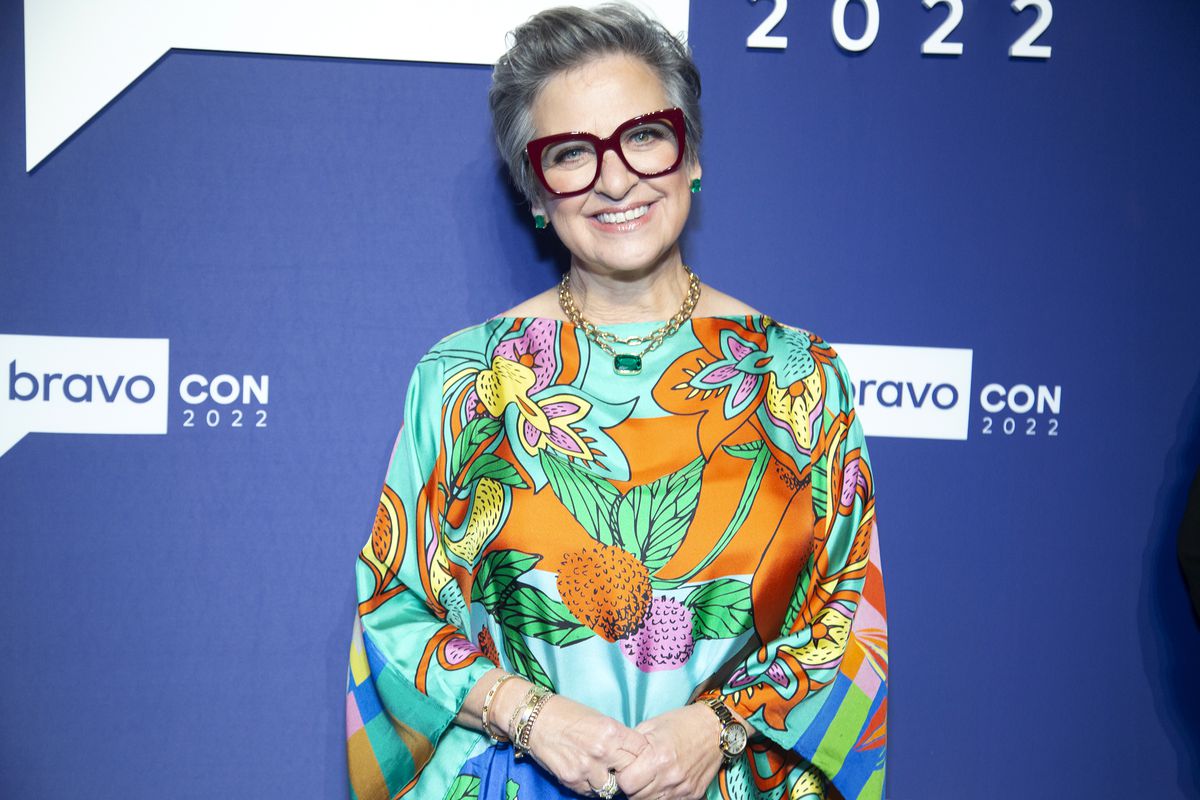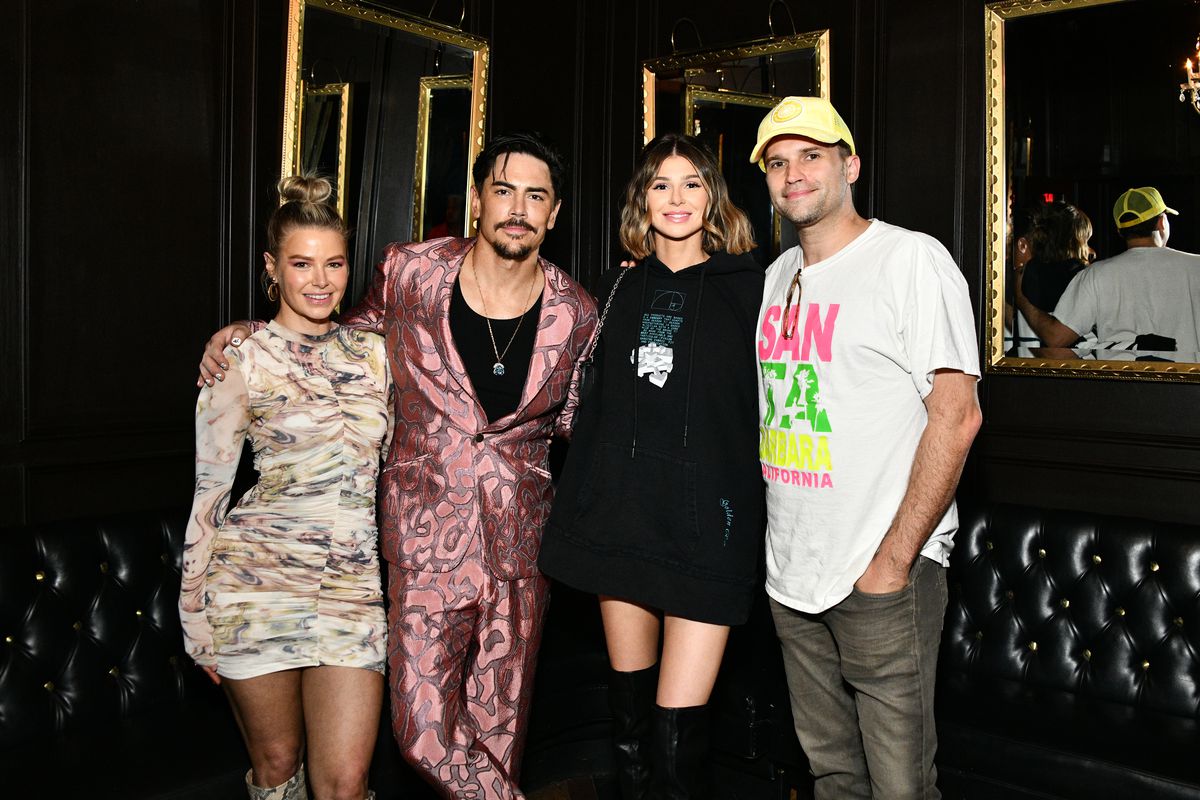March 17, 2024:
Suits may be having a moment, but when it comes to compelling legal drama, Bravo has had the TV genre on lock. The past few years have been rife with court cases: Jen Shah’s fraud case and subsequent prison sentencing made Real Housewives of Salt Lake City appointment TV, while Erika Jayne’s ex-husband’s embezzlement case — the disbarred attorney stands accused of stealing from the relatives of airplane crash victims — gave Real Housewives of Beverly Hills one of its buzziest storylines in years.
However, the same court drama viewers have become accustomed to watching on Bravo is currently affecting the network off-screen, as several ex-Bravolebrities are laying out behind-the-scenes grievances with producers through legal means.
A sexual harassment lawsuit against Bravo filed by former Real Housewives of New Jersey star Caroline Manzo appears to be stalling a season of the Peacock spinoff Real Housewives Ultimate Girls Trip. Meanwhile, former RHOBH star Brandi Glanville, Manzo’s alleged assailant, is threatening to sue Bravo for its treatment of her following the controversy. Additionally, ex-Real Housewives of New York cast member Leah McSweeney is suing Bravo and Real Housewives executive producer Andy Cohen for discrimination and retaliation. (She’s also accused Cohen of doing cocaine with Real Housewives, which could become a war of its own.) Shortly after McSweeney’s filing, Cohen’s attorney, Orin Snyder, responded with a letter, claiming her complaint was “littered with false, offensive, and defamatory statements.”
There’s also former Vanderpump Rules star Rachel Leviss, who’s surprisingly not attempting to sue Bravo post-Scandoval. Rather, she’s brought a lawsuit alleging eavesdropping and revenge porn against her co-stars Tom Sandoval and Ariana Madix, regarding an explicit FaceTime call Sandoval recorded, which exposed the affair.
This isn’t the first time Bravo has been legally confronted over the way shows are made. In 2022, Real Housewives of Atlanta OG NeNe Leakes sued Bravo for racial discrimination (she later dropped it). And last year, former RHONY star Bethenny Frankel made somewhat inconsistent and confusing efforts toward a “reality reckoning,” which mostly manifested in a podcast series. However, her outspokenness about pay disparity, unsafe working conditions, and the general power dynamic between reality stars and producers has clearly had a ripple effect in the Bravo community.
But as the Real Housewives universe continues to expand and grow in popularity, stars of these programs are finally wondering who’s responsible for their own reality.
During last year’s SAG-AFTRA and WGA strikes, Frankel announced her efforts toward a reality-TV union in a Variety interview. In August, defense lawyers Mark Geragos and Bryan Freedman, reportedly representing Frankel and other reality stars, sent NBCUniversal (which owns Bravo and Peacock) a formal request to preserve documents potentially relevant to a lawsuit. In it, they accused the media company of “grotesque and depraved mistreatment” and covering up “acts of sexual violence.” (An NBCUniversal spokesperson responded that the company is “committed to maintaining a safe and respectful workplace” and takes “timely, appropriate action” toward complaints.) Since then, Frankel’s claimed she’s “not hiring lawyers” nor suing Bravo but helping other aggrieved reality stars seek justice. While not the first to confront reality producers over working conditions, she seems to have provided fellow Bravolebs a framework for addressing the power dynamics in their workplaces.
On January 26, Deadline reported that Manzo was suing Bravo and its affiliated companies — NBCUniversal, Shed Media, Forest Productions, Warner Bros. Entertainment, and Peacock TV — for “encouraging” and “allowing” Glanville to sexually harass her during the filming of the Morocco-set season of Real Housewives Ultimate Girls Trip. In the complaint, Manzo’s attorneys detail that Glanville allegedly “[held] MANZO down with her body” and “thrust her tongue in MANZO’s mouth” during a party. When Manzo got up to go to the bathroom, she claims that Glanville followed her and continued to assault her.
Strikingly, Manzo is not suing Glanville for sexual harassment or assault. Instead, her lawsuit seeks to hold Bravo responsible for hiring Glanville despite her “prior deviant sexual proclivities and sexually harassing conduct” as well as “ply[ing] GLANVILLE with copious amounts of alcohol so that she would act outrageous.” She’s seeking unspecified damages.

Alcohol is also relevant in McSweeney’s complaint, which is already proving to be a larger point of contention among fans. Before she filed court documents, the streetwear founder had spoken publicly about producers’ alleged disregard for her and other cast members’ sobriety on RHONY and season three of RHUGT in a Vanity Fair exposé.
In her lawsuit, McSweeney accuses Bravo and its third-party producers of “engaging in guerrilla-type psychological warfare intended to pressurize [her] into a psychological break and cause [her] to relapse.” Most of her accusations focus on producers’ alleged failure to accommodate her “bipolar, depression, and anxiety disorders,” in addition to her alcohol addiction. In her complaint, she references an incident where she was allegedly prohibited from leaving filming to visit her dying grandmother or else be terminated.
Critical commenters on social media have argued that it is McSweeney’s personal responsibility to maintain her own sobriety. But Dan Braverman, an employment law attorney at Romano Law, says her addiction to alcohol can be deemed “a disability under federal, state, and local discrimination laws.”
“This would necessitate that McSweeney be provided reasonable accommodations and not be discriminated against or fired for that reason,” he told Vox. While Braverman notes that McSweeney’s status as a contract worker would typically complicate this situation, in New York, where McSweeney has filed her complaint, the City Human Rights Law says that all independent contractors “have the right to receive reasonable accommodations for needs related to disabilities.”
Still, some viewers say that McSweeney’s claims are undermined by her past behavior on the franchise. In her first season of RHONY, she says she started drinking again six months prior to filming. A clip of McSweeney encouraging her RHUGT cast members to drink because they were boring her has since resurfaced. Naysayers also point out that she chose to return to Bravo following her negative experiences on RHONY. While this doesn’t automatically disprove her claims — people return to unpleasant job situations out of necessity — it could be used against her in court, according to Braverman.
“If McSweeney voluntarily chose to enter this environment again by rejoining the show and encouraging the behavior she is now alleging was discriminatory, the defense could argue that she contributed to some or all of her damages,” he said.
Still, the overwhelmingly critical response to McSweeney’s claims reflects a moral quandary that’s always undermined the pleasure of viewing reality TV — especially in the Bravo universe.
That dilemma has become more pronounced as high-stakes, “earth-shattering” drama has increasingly become the norm and desired outcome on Bravo. But after an explosive cheating scandal that incites cyberbullying or a storyline that culminates in a DUI, who’s responsible for the devastation that’s left behind?
As demonstrated by Manzo, McSweeney, Leakes, and Frankel, that question of accountability is partially a legal matter regarding what reality performers are owed. As Braverman noted, most reality stars are independent contractors — not employees, who are more thoroughly protected under federal laws. Nevertheless, legality doesn’t always overlap with morality. Nor do the current state of employment laws negate the ethical problem of reality performers being overworked, underpaid, mistreated, or placed in harmful work environments.
Still, the point at which producers are expected to intervene when, say, a Real Housewife has too much to drink remains murky. At the very least, it should probably happen when someone, as Manzo’s alleging, is committing a crime against another person. But what about when someone is destroying their own life? How does production proceed when, unlike McSweeney, a reality star isn’t even aware that they could potentially be an addict and can also continue their alcohol consumption off-camera?
The issue has presented itself with Real Housewives of Orange County cast member Shannon Beador, who received a DUI last year following a hit-and-run and was sentenced to three years of probation. For several seasons now, including the latest season 17, Beador’s drunken behavior has been a point of concern amongst her castmates, and she’s repeatedly denied having a problem.
This type of personal wreckage makes for “good” TV, which is ultimately good for Bravo. Likewise, producers and editors have seemingly played into Beador’s drinking storyline, drawing comedy from her habit of making inebriated phone calls to her fellow Housewives and forgetting them the next day. Shortly after her DUI arrest, she was also permitted to attend Bravo’s annual convention, BravoCon — her presence being somewhat of a draw for the event. There, she announced that she completed “28 days of behavioral wellness” with an alcohol specialist.
Beador has been a thoroughly compelling and enjoyable person to watch outside her troubling drinking habits. However, her story arc represents the risk and subsequent discomfort of capturing someone’s life over a long period of time, which can often illuminate a pattern of dangerous habits and poor decision-making. It’s different from watching a competition show like The Bachelor and Love Island where cast members are placed in a temporary, more controlled setting. On more loosely structured, slice-of-life shows like Real Housewives or Vanderpump Rules, there is an understanding that the cast is partially narrativizing their own lives.
It’s common knowledge that these plots are produced and edited to varying degrees. But in the case of having a seven-month-long affair with your close friend’s life partner, for example, those facts can’t really be manipulated. This reality makes Leviss’s lawsuit post-Scandoval a little harder to swallow.

Following the scandal, Leviss decided to forgo filming the subsequent season 11. Instead, she launched a podcast called Rachel Goes Rogue, detailing her side of the controversy. She also appeared on Just B with Bethenny Frankel, where she discussed the machinations behind her so-called “villain edit.”
Without downplaying the potential harm Madix and Sandoval may have caused in this dirty FaceTime debacle, it’s hard not to view her lawsuit as an attempt to regain control of a narrative where she inarguably cast herself as a villain. Plenty of Bravolebrities are already doing this by way of podcasts and tell-all interviews. But Leviss’s lawsuit represents a new method in which Bravolebs may be handling the dissatisfaction and humiliation they experience on their shows in the future and are already presently doing.
For now, it’s unclear whether Madix actually distributed the video, and if she did, whether it was with an intent to harm Leviss. What’s more firmly laid out in the complaint, though, is a power dynamic where Bravo and other Vanderpump Rules cast members benefited from her bad decisions. Overall, it seems like reality stars and fans are still reconciling whether this is an ethical issue or just the inherent bargain of doing reality TV. Maybe it’s both.